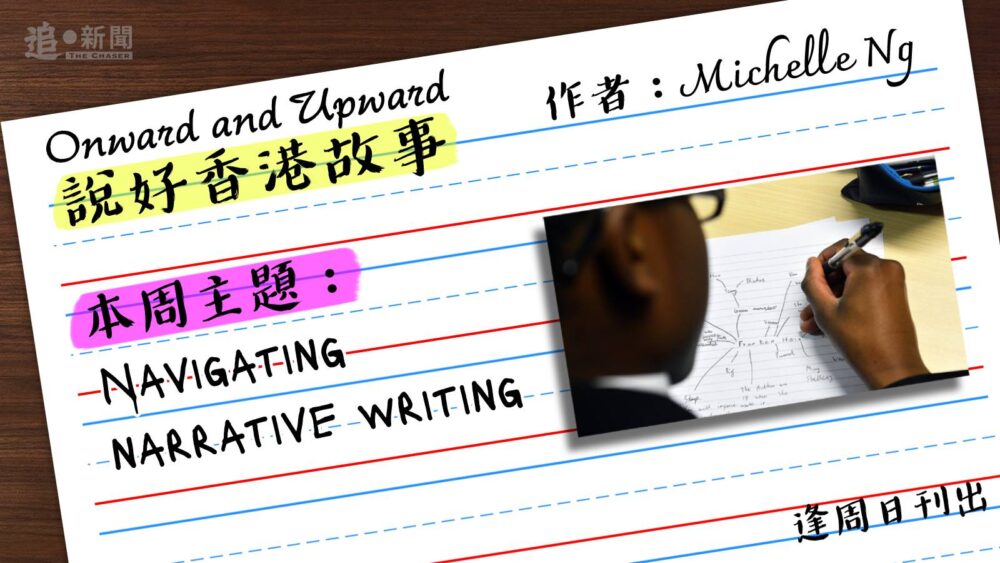
When I began to write professionally several years ago, the type of writing I dreaded the most was the one that seemed the easiest at first glance: narrative writing.
How tricky could narrative writing be, you might ask. After all, in our everyday conversations, we constantly recount happenings to others, and we do so effortlessly enough.
Expressing ourselves in speech is different from expressing ourselves in print, though. When we are giving an account of an event in person, our listeners can rely on cues like our facial expressions. When we are communicating in writing, in contrast, our readers only have our copies to count on. If we fail to present our information in an order that makes most sense to our readers, they may have to struggle to see the pictures we have in our minds.
The following narration of a simple incident isn’t up to par because the student who wrote it failed to mention a detail early enough.
Smartphones also come in handy in tough situations. Once I left my cello in the back of my car, five minutes before the orchestra rehearsal was to begin. I panicked, not knowing what to do, as at that time I didn’t own a phone yet. So, I stood there like a rock next to the parking lot, hoping my dad would realise I had left my instrument behind and would drive back for me. Luckily, a music teacher passed by. She handed over her smartphone to me and I was able to persuade my dad to bring me back my cello. I was able to make it to the school hall on time and avoid a hurl of angry criticism from my strict conductor. I really dodged the bullet, thanks to the teacher and her smartphone.
Because the student erred in not mentioning her dad soon enough, initially, she gave her reader the impression that she was the one who drove herself to the rehearsal. Her reader is therefore left wondering, “couldn’t she simply have gone back to her car to fetch her cello?” Only midway into her paragraph did the student tell her reader it was her dad who did the driving; only then did the elements of her story fall into place.
Compare the student’s version with my reader-friendly rewrite, and you can see how getting one apparently minor detail right (in addition to infusing your prose with emotions) can make a dramatic difference:
Being a cellist at the school orchestra is a point of pride for me, and so I will always be grateful to the inventor of the mobile phone for having once narrowly saved me from incurring my conductor’s displeasure: it was only after my father dropped me off at an orchestra rehearsal that I realized I’d left my cello at the back of his car. My conductor was short-fused by nature; did I really have to brace for the torrent of abuse he would no doubt hurl at me, or would my dad quickly notice my instrument was in the backseat and drive back? I stood helplessly on the spot. As luck would have it, a music teacher walked past; I contacted my dad using her phone. When I arrived at the school hall, I was able to immerse myself in the joy of playing instead of worrying over an irate conductor.
In the long struggle to write well, the use of imagination is indispensable. To develop my students’ awareness of knowing when to write what, I’d ask them to reflect on patients who nearly died on the operating table – after they recover and think back on their near-death experience, they remember leaving their bodies and looking at their physical selves from the above as if the surgery had nothing with them. Students should likewise train themselves to be disinterested observers of their prose; this way, they stand a greater chance of spotting in their copies the kind of oversight committed by that student who neglected to mention her father early enough.
Michelle Ng
英國牛津大學畢業,前《蘋果日報》和《眾新聞》專欄作家,現在身在楓葉國,心繫中國大陸和香港。
聯絡方式: michelleng.coach@proton.me
個人網站: https://michellengwritings.com
逢周日英國時間晚上8時 / 周一香港時間凌晨3時刊出
《追新聞》無金主,只有您!為訂戶提供驚喜優惠,好讓大家支持本平台,再撐埋黃店。香港訂戶可分享給英國親友使用。



